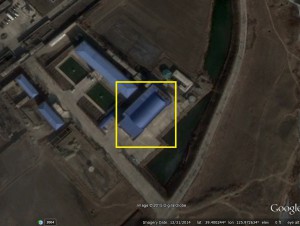UPDATE 1 (2015-3-18): Although overall trade volume between the DPRK and Russia was down in 2014, North Korea’s exports to Russia were up. According to Yonhap:
North Korea’s exports to Russia soared nearly 32 percent in 2014 from a year earlier, a report showed Wednesday, amid Pyongyang’s efforts to bolster ties with Moscow.
According to the report by the Korea Trade Investment Promotion Agency, North Korea’s outbound shipments to Russia reached US$10.17 million in 2014, up 31.9 percent from a year earlier.
By item, textile exports came to $4.7 million, or 46.2 percent of the total, followed by machinery with $1.6 million, musical instruments with $1.37 million and electrical equipment with $670,000.
Pyongyang also sold $250,000 worth of cars to Russia last year, 2.3 times more than the previous year, with shipments of optical devices soaring more than 60 times to $190,000.
Bilateral trade volume, however, fell 11.4 percent on-year to $92.34 million last year as Pyongyang’s imports from Russia shrank 14.9 percent to $82.17 million.
Crude imports dropped 7.9 percent on-year to $33.98 million last year, taking up the largest 41.7 percent share of the total imports.
“North Korea has been striving to strengthen economic cooperation with Moscow, though it will take time for the North to diversify its trade markets due to its heavy dependence on China in the past,” said Cho Bong-hyun, a senior research fellow at the state-run Industrial Bank of Korea (IBK) in Seoul.
Last year, more than 90 percent of its exports were bound for China. Bilateral trade between North Korea and China, however, fell 2.4 percent from 2013 to $6.39 billion in 2014, marking the first annual decline since 2009, according to Seoul data.
The 2014 figure is seen as signaling that the strained political ties between the two nations, particularly after the North’s third nuclear test in February 2013, have affected their economic relations.
Amid such languid ties with Beijing, North Korea has been ramping up efforts to forge a closer relationship with Russia, with the two nations declaring 2015 as a year of friendship.
ORIGINAL POST (2014-12-4): According to Yonhap, trade between North Korea and Russia (imports and exports)dropped significantly in the first three quarters of 2014:
Trade between North Korea and Russia dropped significantly this year, despite Pyongyang’s efforts to step up economic cooperation with Moscow, data showed Thursday.
Russia’s exports to North Korea reached US$59.01 million in the first nine months of this year, down 10.1 percent from the same period last year, according to the data by the Vladivostok office of the state-run Korea Trade-Investment Promotion Agency (KOTRA).
In particular, Russia’s exports of flour to North Korea plunged 72.2 percent on-year to $770,000.
Russia’s imports from its neighbor also fell 7.9 percent on-year to $6.46 million during the January-September period.
North Korea’s imports of electronics and coal from Russia also tumbled 61 percent and 44.6 percent, respectively, according to the data.
Russia’s imports of North Korean nuclear reactors, boilers and other machinery, meanwhile, shrank 57.1 percent on-year to reach $451,000,
Bucking the overall decline, Russia’s imports of North Korea-made clothes soared 35.5 percent on-year to $3.61 million, maintaining an uptrend of recent years.
North Korea has been intensifying efforts to expand economic cooperation with Russia, recently deciding to use the Russian ruble as a trade currency as well as launching a fledgling logistics project to link Russia’s border city of Khasan to the North’s port of Rajin.
Read the full story here:
N. Korea-Russia trade shrinks this year
Yonhap
2014-12-4

